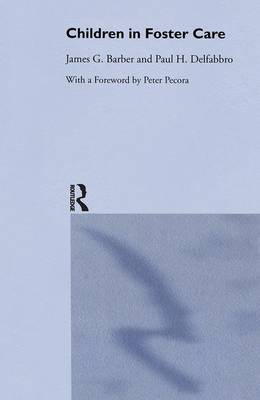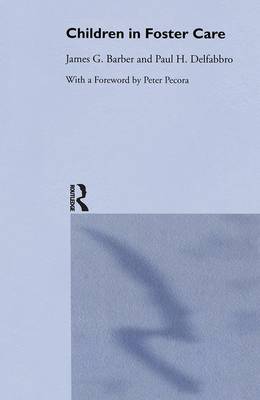
- Afhalen na 1 uur in een winkel met voorraad
- Gratis thuislevering in België vanaf € 30
- Ruim aanbod met 7 miljoen producten
- Afhalen na 1 uur in een winkel met voorraad
- Gratis thuislevering in België vanaf € 30
- Ruim aanbod met 7 miljoen producten
Omschrijving
Researchers, practitioners, journalists and politicians increasingly recognise that foster care throughout the world is in a state of crisis. There are more and more children needing care and, as residential alternatives dry up, more of these children are being assigned to foster families. This book reports the major findings of a two-year longitudinal study of 235 such children who entered the foster care system in Southern Australia between 1998 and 1999. As well as examining the changing policy context of children's services, the book documents the psychosocial outcomes for these children, their feedback on their experiences of care, and the views of their social workers and carers. In the process, the book examines some cherished beliefs about foster care policy and sheds new light on them.
The research reveals that while most children do quite well in foster care up to the two-year point, there is a worrying amount of placement instability at a time when the concentration of emotionally troubled children in care is increasing throughout the western world. Although, surprisingly, placement instability does not appear to produce psychosocial impairment for a period of up to eight months in care, it has an extreme effect on children who are moved from placement to placement because no carer will tolerate their behaviour. These children are consigned to a life of distribution and emotional upheaval because of the lack of alternative forms of care. Another unexpected finding of the research is that increasing the rate of parental contact achieves little or nothing in relation to the likelihood of family reunification.
As child welfare increasingly enters a world of research-based practice, Children in Foster Care provides some much needed hard evidence of how foster care policy and practice can be improved.
Specificaties
Betrokkenen
- Auteur(s):
- Uitgeverij:
Inhoud
- Aantal bladzijden:
- 240
- Taal:
- Engels
Eigenschappen
- Productcode (EAN):
- 9780415311649
- Verschijningsdatum:
- 18/12/2003
- Uitvoering:
- Hardcover
- Formaat:
- Ongenaaid / garenloos gebonden
- Afmetingen:
- 166 mm x 240 mm
- Gewicht:
- 494 g

Alleen bij Standaard Boekhandel
Beoordelingen
We publiceren alleen reviews die voldoen aan de voorwaarden voor reviews. Bekijk onze voorwaarden voor reviews.











